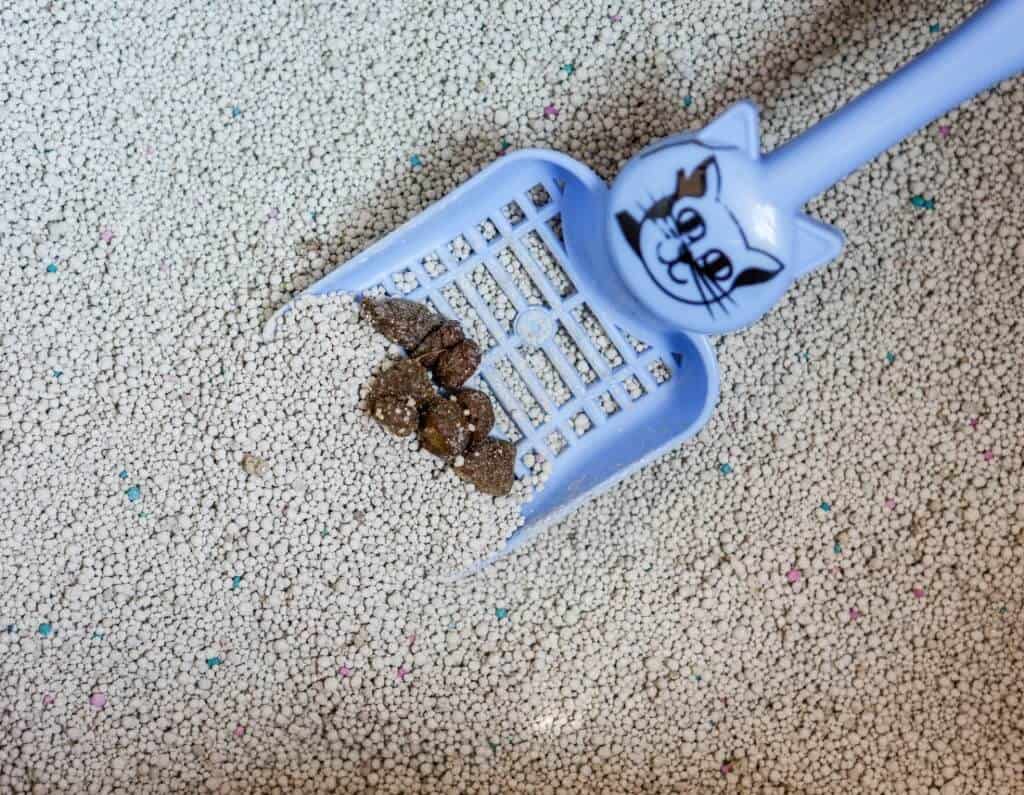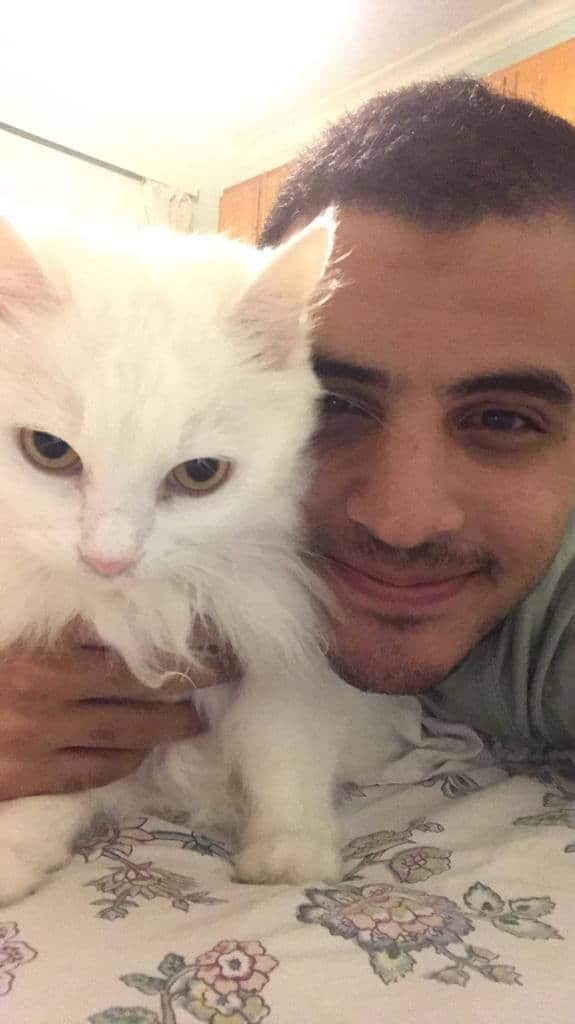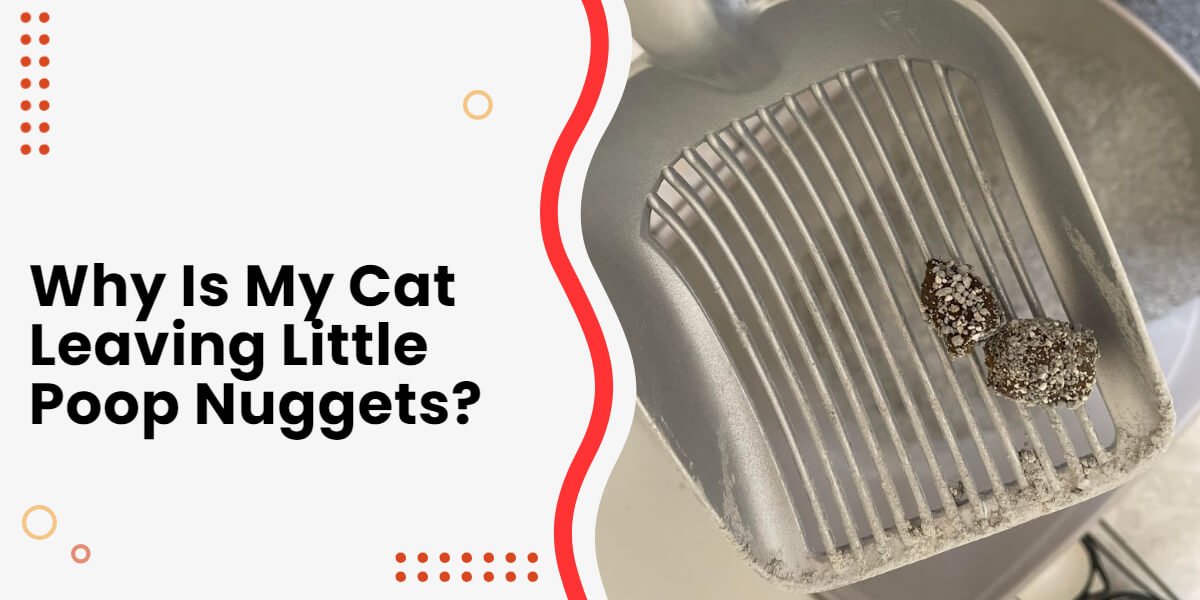As someone deeply immersed in the world of feline companionship, caring for five cats over the past 14 years has provided a wealth of insights into their behaviors. Yet, the sight of small, pellet-like poop nuggets left by your cat can still raise questions. In this guide, I’ll delve into why cats exhibit this behavior, unraveling potential health clues and behavioral reasons behind these curious little deposits.
Table of Contents
why is Your cat leaving little poop nuggets Around The House?
Cats might leave poop nuggets outside the litter box due to sphincter incontinence, causing them to inadvertently pass small amounts of stool. You might observe these fecal balls in their bed or around the house. Addressing this behavior may involve consulting a vet to identify and manage the underlying cause.
here are 7 possible reasons
Cats care about their hygiene. They don’t like to be filthy or wet; that’s why they groom their bodies all the time. Likewise, they cover their waste in their litter box. So, if you find your cat’s behavior has changed, it means there is something wrong.
Here are the most common reasons for your cat to leave little poop nuggets on the floor:
1- Fear
If your cat is afraid, it may not get to the litter box in time. Cats can be scared because of sudden noise, a stranger, or a change of their box location. Make sure to place its litter pan in a quiet, safe place to prevent pooping on the floor.
2- Old Age and Diminished Mobility
As cats get older, they may develop arthritis or other conditions that make it difficult to get to the litter box or position themselves properly. Senior cats may pass small amounts of stool around the house if they can’t make it to the box in time. Adding additional litter boxes around the home can help.
3- Inflammatory Bowel Disease
Inflammatory bowel disease (IBD) can cause changes in bowel movements, diarrhea, increased urgency, and accidental leakage of stool. If the stool is also bloody or mucus-filled, IBD may be the cause. Veterinary care is needed.
4- Medication Side Effects
Some medications, like steroids or antibiotics, may cause loose stools or other GI upset. If stool leakage began after starting a new medication, notify your vet.
5- Stress
Cats are very sensitive pets, as any tiny change can trigger them. For instance, if you bring in new furniture, let a stranger move in, or don’t pay enough attention to them, they can get stressed quickly.
This may lead them to change their attitude and leave poop nuggets away from their litter box. In such a situation, try to adapt it to the recent changes step by step.
Did You Know: Canned pumpkin is good for your feline’s digestion if given in moderation
6- Bringing New Pet
Bringing a new cat to your house may lead to some undesirable poops all over the house from your old one. Therefore, introducing your new pet should happen gradually. Show your cat that it has its litter pan away from the other cat’s one, so she knows she has her own territory.
7- Medical Troubles
If you check the above reasons and your cat still leaves poop nuggets, it’s probably a medical issue. Here are the most common conditions that may cause frequent pooping:
- Allergies
- Bowel incontinence
- Liver and thyroid problems
- Diabetes
- Digestive issues
Users Also Ask:
– Why Is My Cat Making Weird Mouth Movements?
– Will My Cat Harm My Newly Adopted Hamster?
– How to Prevent My Cat From Pulling The Carpet?
– Cat Spraying No More Review
Things to Consider When You See Little Poop Nuggets

Although exploring the litter box of your cat sounds gross, it’s important to do it to find out if your cat has gastrointestinal health issues. Poop can show much about what goes on inside your kitten. So you should check if the cat is leaving little poop nuggets whenever it goes.
To check up on your beloved cat’s health, you need to pay attention to the following aspects:
Poop Shape
Your cat’s poop should look like a small tree log. If your cat is pooping small solid poop nuggets, it may be a sign of an underlying issue. Cat’s stool can also be of no shape, which is a clue of diarrhea.
Diarrhea is normal if it was only a one-time occasion. However, if you’re seeing loose poops in the cat’s litter box frequently, a visit to the vet may be in order.
Recommended: The best affordable Pretty Litter alternatives on the market
Poop Color
On normal occasions, the color of cat feces is dark brown, like chocolate. Sometimes, a cat’s poop is affected by what it eats.
For example, if you give your cat food containing unnatural colors, the color of its stool will change. However, it’s unhealthy if your cat’s poop is bloody red, green, black, or even light brown.
Frequency
If you’ve never noticed how many times your cat has bowel movements, now may be the time to start checking. The frequency of pooping differs according to the cat’s age. A young cat poops more than an older one.
Whenever you notice your cat defecating more than twice a day or spending a whole two days without pooping, you may want to call your vet.
Smell
Like any poo in the world, cats’ feces smell bad. But you probably know the everyday odor of your cat’s poop.
If you’re unable to bear the scent of your cat’s excrements, it’s probably a shout from its stomach. An unpleasant smell is often a sign of stomach disease.
Content
Look closely at your cat’s poop. If it contains pieces of food, fur, or jelly-like substances, your cat is likely having a problem with its digestive system.
Consistency
The thickness of your cat’s stool is a signal for its health. An ordinary poo shouldn’t be solid or loose, but something in between.
If you can’t easily remove the cat’s poop without losing its log shape, your cat is sick. To pass the right judgment, I suggest you put the poop in a bag and squash it. When it’s easily broken, it means that it’s normal.
Size
Your cat’s stool size should be identical to the chunk of food it eats. Contact your veterinarian if your cat’s pooping has decreased or increased, for it may be a clue to digesting problems.
Recommended: Cat chewing on nothing and purring, is this normal?
Differentiating Normal vs Abnormal Poop
It can be tricky to determine if your cat’s poop is normal or a sign of illness. Here are some guidelines:
Normal Poop
- Log shape
- Solid, tender consistency
- Dark brown color
- Little odor
- 1-2 bowel movements per day
Abnormal Poop
You should contact your vet if the poop is:
- Not a log/no shape
- Too hard or too soft
- Red, black, green, yellow, or white
- Excessively foul smelling
- Contains blood, mucus, worms, or undigested food
Also, see your vet if your cat is:
- Straining but unable to poop
- Pooping more than 3 times daily
- Not pooping at all for over 2 days
- Frequently pooping outside the litter box
Keeping an eye on litter box habits is important. Drastic changes in frequency, consistency, color, smell, or shape can signify gastrointestinal issues or other health problems requiring veterinary attention. Track any changes and inform your vet, especially if accompanied by vomiting, appetite changes, or lethargy.
What’s Next?
To avoid traces of litter and poop, follow the following tips:
- Use cat shampoo, bathing gloves, wipes, and odor removal to keep the litter box clean.
- Change your cat’s litter pan to suit its age and avoid tracking poops.
- Shorten your cat’s long fur to prevent sticky poo.
Wrapping Up
Cat leaving little poop nuggets can be an unheard scream from your cat to show its unhealthy condition. So you should regularly visit your vet, clean your cat’s litter box, and give it the attention it needs. By doing so, you’ll avoid your cat’s pooping everywhere.

I’ve been living with cats since 2008 and I can confidently say I have more feline friends than humans lol. I currently live with 5 cats in different life stages; two of them are less than one year old, one is 2-ish years old and the oldest two are 9-ish years old. I’ve developed a strong bond with cats over the years and I’m eager to share my experience through this blog. You can learn more about my cats here.

